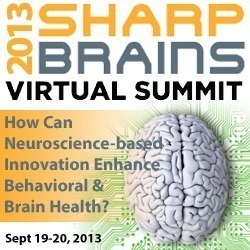Matthew Barrett: Human memory is not a recording device
What excites you the most about your job?
As a Professor and the founder of Brain Trainers Mental Fitness LLC, I love seeing how the right information can have a life-changing effect on people.
Please tell us about your interest in applied brain science. What areas are you most interested in? What motivated you to pursue work in your field?
I’m an educator first and foremost: I like to see people empowered with clear, accurate, and useful information about their brains. Just understanding more about diet, exercise and sleep could revolutionize our society. Beyond education, I’m especially interested in biofeedback, neurofeedback, mindfulness, mental athletics, and lucid dreaming.
What are 1–2 key things you’d like every person to understand regarding his/ her own brain and mind, that you think is commonly misrepresented or not addressed in the popular media?
People just expect too much of human memory. It’s not a recording device. I can’t count the number of times someone has come to me thinking there was something “wrong” with their memory, only to describe limitations that are perfectly normal. I’m considering putting this on my tombstone: “There is nothing wrong with you!”
Where do you see clear “low-hanging fruit” to enhance behavioral and brain health based on neuroscience and innovation?
I may be biased, but I believe that education is the best low-hanging fruit around. If people don’t know about the typical limitations of our brain, they can’t set reasonable expectations, nor can they develop workaround strategies to improve performance. There is clear, accurate, and useful information available. We just need to disseminate it.
What surprised you the most at the 2013 SharpBrains Virtual Summit?
I was most surprised by the other participants–I’ve often felt alone in my career, especially when I would hear about someone else “in the industry” only to discover they are peddling bad science. During the watercooler chats, everyone was so knowledgeable and passionate. I’ve looked up many since then, and haven’t seen one I wouldn’t endorse.
What is one important thing you are working on now, and where can people learn more about it?
I’m working on a simple approach for memory training that would work for students, seniors and mental athletes of any age. I will have more information to share next year.
Finally, what do YOU do to stay sharp?
So much! Every type of puzzle; lean protein, complex carbs and veggies; track sleep cycles and record dreams; avoid caffeine, nicotine and alcohol; take EVERY opportunity for novelty and mindfulness. Lately my wife and I started ballroom dancing, which is a good aerobic and mental workout. As the SharpBrains Guide emphasizes, what’s good for the heart is good for the brain, and what’s good for the brain is good for the heart!

—This conversation is part of the interview series with Speakers and Participants in the 2013 SharpBrains Virtual Summit (September 19–20th). Previous interviews include:
- Sandra Chapman: Using innovative thinking, and brain training, we can rewire the brain at every level
- Dharma Singh Khalsa: Why are yoga and meditation often overlooked for healthy brain aging?
- Cori Lathan: It’s time for an annual brain check-up, a “brain thermometer”
- Teresa Kennedy: Total health includes physical AND mental fitness



